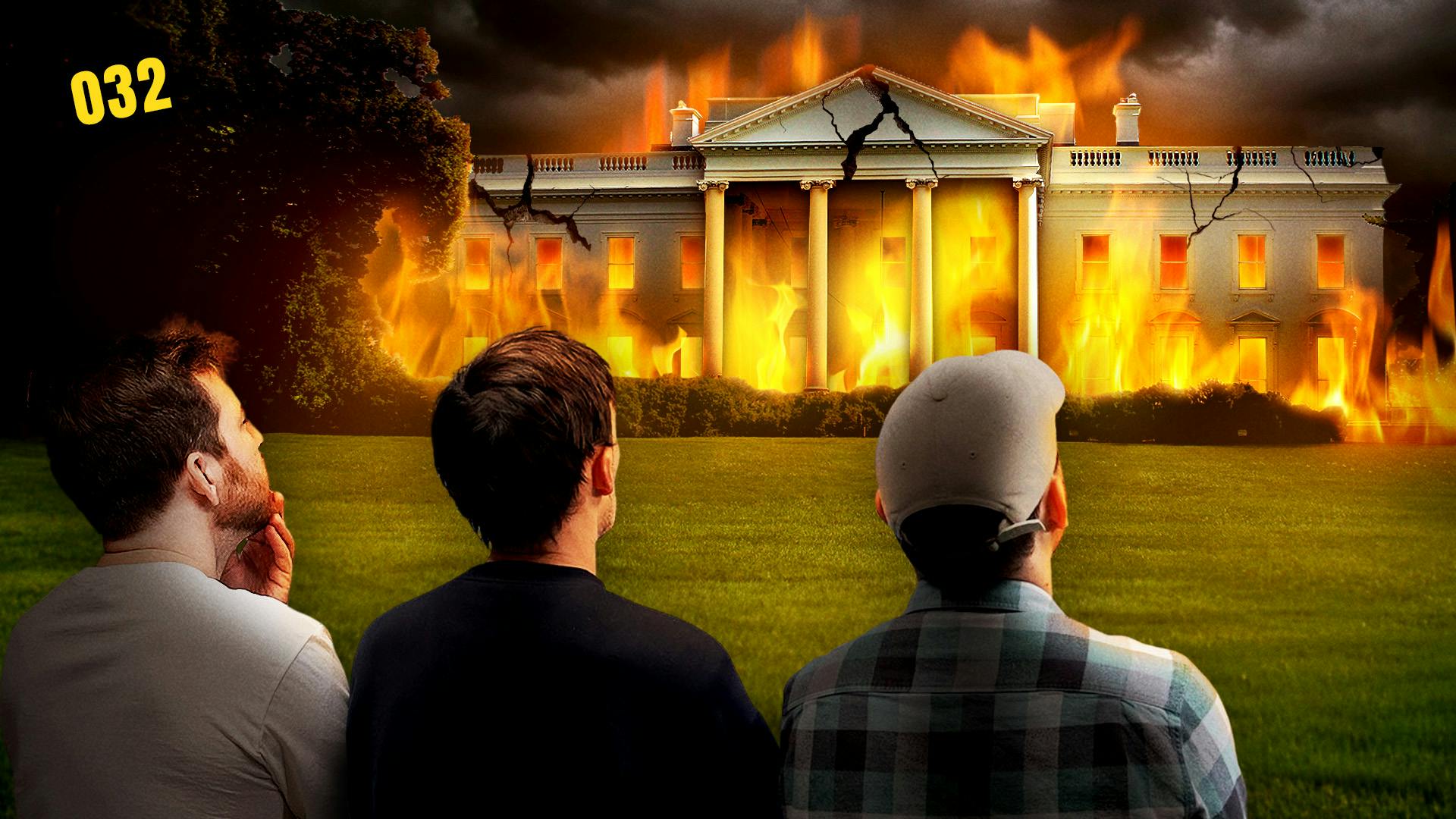It's Still Shutdown | Ep. 032 Lemonade Stand 🍋
Please note: For a video version of the podcast, please check it out on YouTube: https://youtu.be/acwCoMV8jTE
On this week's show... Aiden invests in the weather, Atrioc buys the Treasury, and DougDoug does his best Bono impersonation.
We launched a Patreon! - https://www.patreon.com/lemonadestand for bonus episodes, discord access, a book club, and many more ways to interact with the show!
Episode: 032
Recorded on: October 7th, 2025
Clips Channel: https://www.youtube.com/channel/UCurXaZAZPKtl8EgH1ymuZgg
Follow us
TikTok - https://www.tiktok.com/@thelemonadecast
Instagram - https://www.instagram.com/thelemonadecast/
Twitter - https://x.com/LemonadeCast
The C-suite
Aiden - https://x.com/aidencalvin
Atrioc - https://x.com/Atrioc
DougDoug - https://x.com/DougDougFood
Edited by Aedish - https://x.com/aedishedits
Produced by Perry - https://x.com/perry_jh
Segments
0:00 Trying to Flip the Curse
3:04 Government Shutdown
4:51 Dept. of Education
7:13 Dept. of Treasury
8:24 Dept. of Housing and Urban Development
10:12 Dept. of Agriculture
13:06 Dept. of War
15:45 Dept. of Justice
17:53 Dept. of Interior
18:45 Dept. of Health and Human Services
20:34 Dept. of Homeland Security
21:48 Dept. of Transportation
28:16 Rapid Fire
32:00 Percentage of Actual Cuts
34:53 Republicans and Democrats
52:21 How long will it last?
1:01:47 H-1B Visas are now $100k
1:21:29 Music Industry vs AI Companies
1:32:45 Outro
New takes on Business, Tech, and Politics. Squeezed fresh every Wednesday.
#lemonadestand #dougdoug #atrioc #aiden
Learn more about your ad choices. Visit podcastchoices.com/adchoices
On this week's show... Aiden invests in the weather, Atrioc buys the Treasury, and DougDoug does his best Bono impersonation.
We launched a Patreon! - https://www.patreon.com/lemonadestand for bonus episodes, discord access, a book club, and many more ways to interact with the show!
Episode: 032
Recorded on: October 7th, 2025
Clips Channel: https://www.youtube.com/channel/UCurXaZAZPKtl8EgH1ymuZgg
Follow us
TikTok - https://www.tiktok.com/@thelemonadecast
Instagram - https://www.instagram.com/thelemonadecast/
Twitter - https://x.com/LemonadeCast
The C-suite
Aiden - https://x.com/aidencalvin
Atrioc - https://x.com/Atrioc
DougDoug - https://x.com/DougDougFood
Edited by Aedish - https://x.com/aedishedits
Produced by Perry - https://x.com/perry_jh
Segments
0:00 Trying to Flip the Curse
3:04 Government Shutdown
4:51 Dept. of Education
7:13 Dept. of Treasury
8:24 Dept. of Housing and Urban Development
10:12 Dept. of Agriculture
13:06 Dept. of War
15:45 Dept. of Justice
17:53 Dept. of Interior
18:45 Dept. of Health and Human Services
20:34 Dept. of Homeland Security
21:48 Dept. of Transportation
28:16 Rapid Fire
32:00 Percentage of Actual Cuts
34:53 Republicans and Democrats
52:21 How long will it last?
1:01:47 H-1B Visas are now $100k
1:21:29 Music Industry vs AI Companies
1:32:45 Outro
New takes on Business, Tech, and Politics. Squeezed fresh every Wednesday.
#lemonadestand #dougdoug #atrioc #aiden
Learn more about your ad choices. Visit podcastchoices.com/adchoices
Press play and read along
Transcript
Transcript is processing—check back soon.
Lemonade Stand — It's Still Shutdown | Ep. 032 Lemonade Stand 🍋





